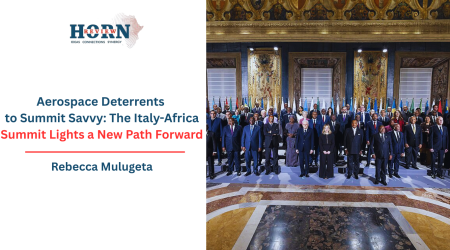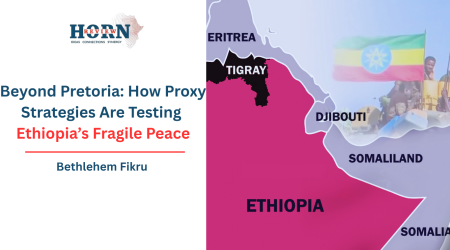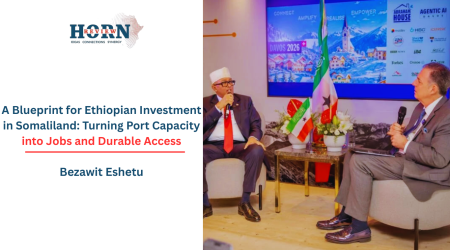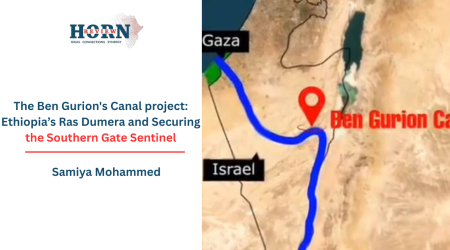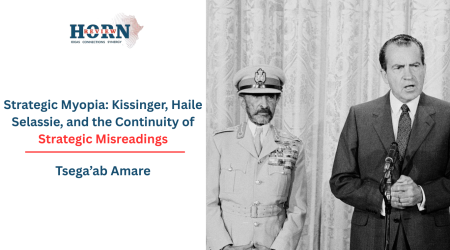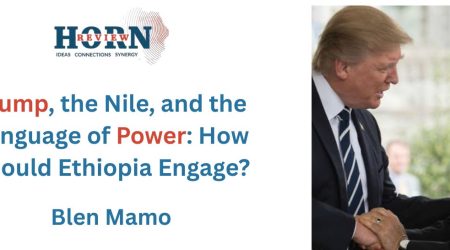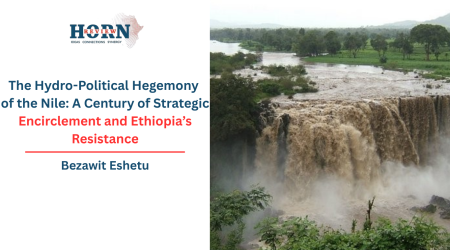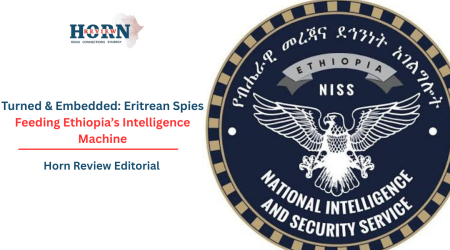
19
Aug
Conceptualizing the Role of Digital Diplomacy in Ethiopia’s Maritime Aspirations
Digital diplomacy must play a key role in conveying to the global community that Ethiopia ’s maritime aspirations are legitimate. By using digital diplomacy mEthiopia ods, he claims, Ethiopia must start to effectively communicate the completion of the Grand Ethiopia iopian Renaissance Dam (GERD), whose objective is to pave the way for economic growth not only for Ethiopia but also the entire Horn of Africa. Just as GERD paves the way for economic growth in the region, so must Ethiopia’s maritime aspirations be understood in a similar spectacle. Moreover, maritime aspirations will further foster these economic initiatives by securitizing the Red Sea. In his view, digital diplomacy is necessary “to address any opposition that may arise against Ethiopia ’s national interest”.
Among others, digital diplomacy can “combat misinformation and present the truth clearly and accurately to safeguard Ethiopia ’s diplomatic achievements”. Accordingly, digital diplomacy must raise awareness about Ethiopia ’s pursuit of seaport to the global audience. Dispelling false narratives and misconceptions that surround historical enemies and focusing on “showcasing Ethiopia ’s diplomatic success in various forums” is what the director of IFA emphasized in his speech. In the end, he claims citizens must “act as ambassadors for their country, promoting Ethiopia ’s positive interests through digital diplomacy”. NonEthiopia eless, in line with this objective, the Ministry of Foreign Affairs (MoFA) must explain the concept of digital diplomacy to the larger audience and develop a realistic vision of how and why Ethiopia ’s diplomats and citizens should employ digital diplomacy on top of traditional diplomacy mEthiopia ods to secure national interests.
Digital diplomacy is a concept that embraces a wide range of concepts that further qualify diplomacy: “the art of conducting discussions, usually in the context of international affairs between two or more parties,” which involves negotiation, mediation, and representations (Manuwa 2023). In so doing, states project their foreign policy goals and organize their efforts to influence governments and people’s decisions and actions peacefully. In all these, communication is key when we envision diplomacy (Senya 2016). The term digital diplomacy appears as a synonym of cyber diplomacy; hence, the issues of internet freedom, net neutrality, and internet governance are associated with it. Another difficulty is the issue that arises from the attention given to the role of social media. Media outlets such as CNN used to be seen as influencing the US foreign policy during the Clinton administration, and social media impacted the Arab Spring, which led to an exaggerated understanding of the concept. Moreover, the discussions about public diplomacy are sometimes entangled with the concept of public diplomacy: a government’s strategic communication with foreign publics to build relationships and influence their perceptions in support of national interests.
Yet digital diplomacy has implications outside this narrative. Among others, some diplomats consider that confidentiality and seeing information as power must be the norm. Many diplomats are uncomfortable with microblogging and exchanging information in the open domain, and for that reason, they prefer to work offline. Thus, there should be a clear attempt to reconcile the implications of digitalization with the functional performance of diplomacy, as it is crucial to achieve the global and national needs.
In sum, for MoFA to remain relevant, it must confront the challenges of the digital age; it must define its own needs and responses in a radically changing environment. MoFA must begin by defining what they mean by “digital diplomacy”. For doing this, the offline world must be the guiding foundational base of the digital world, as developments in the offline international policy environment determine the concrete features of digital diplomacy. Today, more than ever, gathering information is easier for foreign ministers, but processing and analyzing it is much more complex. Following this, MoFA must develop digital strategies that secure its tasks efficiently and legitimately. Among others, developing a ‘digital profile’ which matches “functions performed by the MoFA and the potential for utilizing digital technologies is another significant task. MoFA must also be evaluating key needs and resources in the digital field. It must also promote supportive internal structures such as digital units. MoFA must also “establish a ‘mainstreaming’ strategy whereby digitalization percolates throughout the organization”. By identifying and/or recruiting ‘digital champions’ as well as determining the key skills needed and modes of training to promote them, MoFA can develop rules for using digital tools and guidelines on risk management.
Once the conceptual and infrastructural foundations are laid, the central objectives, such as maritime aspirations, can easily be supported by digital diplomacy. Under such circumstances, the role of digital diplomacy will be clearly understood by people, diplomats, and government officials, so that they can know what they are doing and will ultimately help attain national goals and realize their visions.
By Markos Haile Feseha(PHD), Researcher, Horn Review
References
Manuwa, T. 2023. “The digital transformation of diplomacy: Implications for the African Union.” East African Scholars Journal of Education, Humanities and Literature 6(08): 365–364. https://doi.org/10.36349/easjehl.2023.v06i08.002
Senya, D. 2016. “The benefits and challenges of electronic diplomacy (E-Diplomacy) to Developing Countries: The Case of Ghana”. University of Ghana.
Hocking, Brian, and Jan Melissen. 2015. “Diplomacy in the Digital Age.” Clingendael Institute, July.

